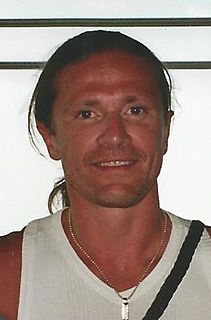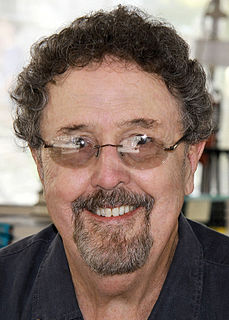A Quote by Dean Koontz
I love my editor, but that would be the definition of hell to me to live with someone and have them go page by page through my manuscript. That I want to avoid at all costs.
Related Quotes
The writer marks the changes he wants to make, while a proofreader also goes through the galley, checking it page-by-page against the manuscript. Once all these changes are identified, a second-pass proof is made, and this, too, gets sent to the author and the proofreader, and the process begins anew.
The enemy is not the badly written page; it is the empty page the great advantage of a badly written page is that it can be rewritten. It can be improved. A blank page is zero. In fact, it’s worse than zero, because it represents territory you’re afraid, unwilling, or too lazy to explore. Avoid exploring this territory long enough, and you’ll abandon your book.
Writing the first draft of a new story is incredibly difficult for me. I will happily do revisions, because once I can see the words on the page, I can go about ripping them up and moving scenes around. A blank page, though? Terrifying. I'm always angsty when I'm working my way through a first draft.
No one reads to hear someone complain about the weather or how poorly their children are behaving. You have to give the readers a reason to turn the page. As a writer you have to invite someone to turn the page. And that is a skill you have to refine. That is why you have to read. You have to read to learn what it is that makes people turn the page.
When I used to go on the Wikipedia page, and I haven't gone on the page in a while, there used to be some guy who was doing my page and he would say that he was my cousin and I was going to be doing projects with him. I don't know who this person is and I don't have a cousin by this name and this person keeps saying that they're doing projects with me. It's so weird.
A book is something that young readers can experience on their own time. They decide when to turn the page. They'll put their arm right on the page so you can't turn it because they're not ready to go to the next page yet. They just want to look at it again, or they want to read the book over and over because they really enjoy setting the pace themselves.

































